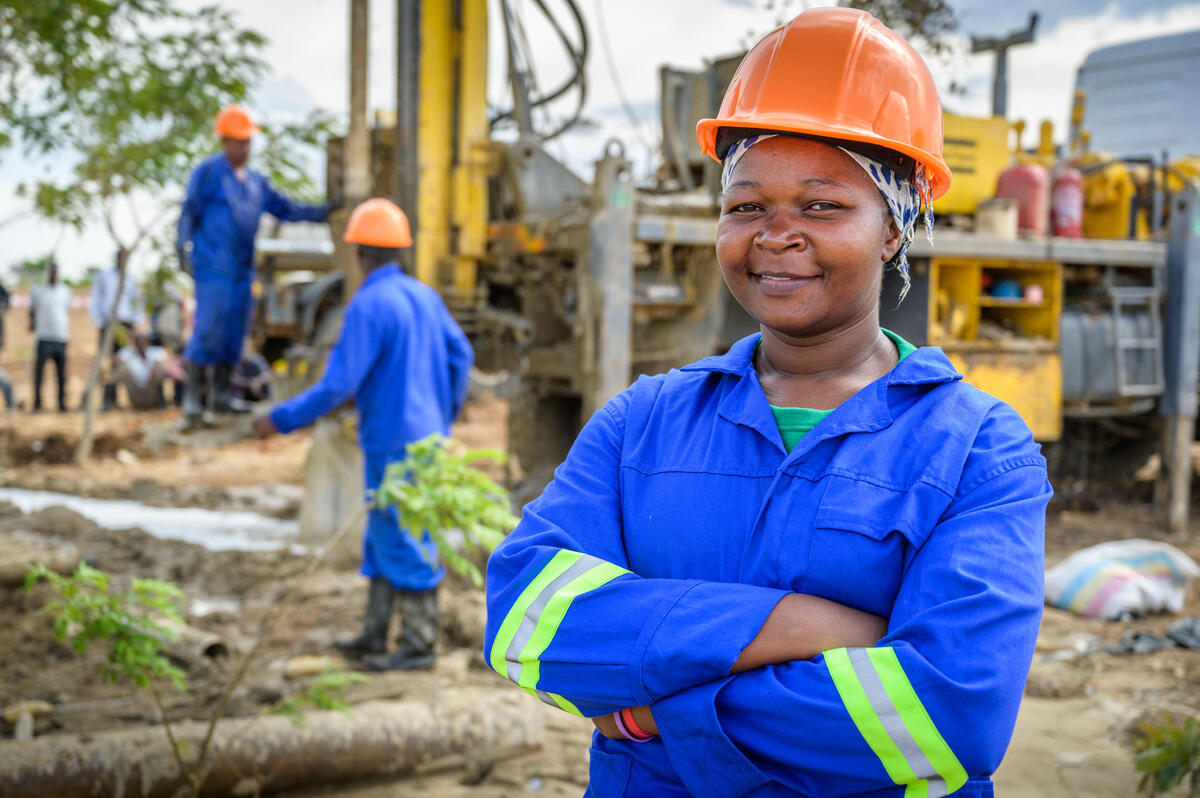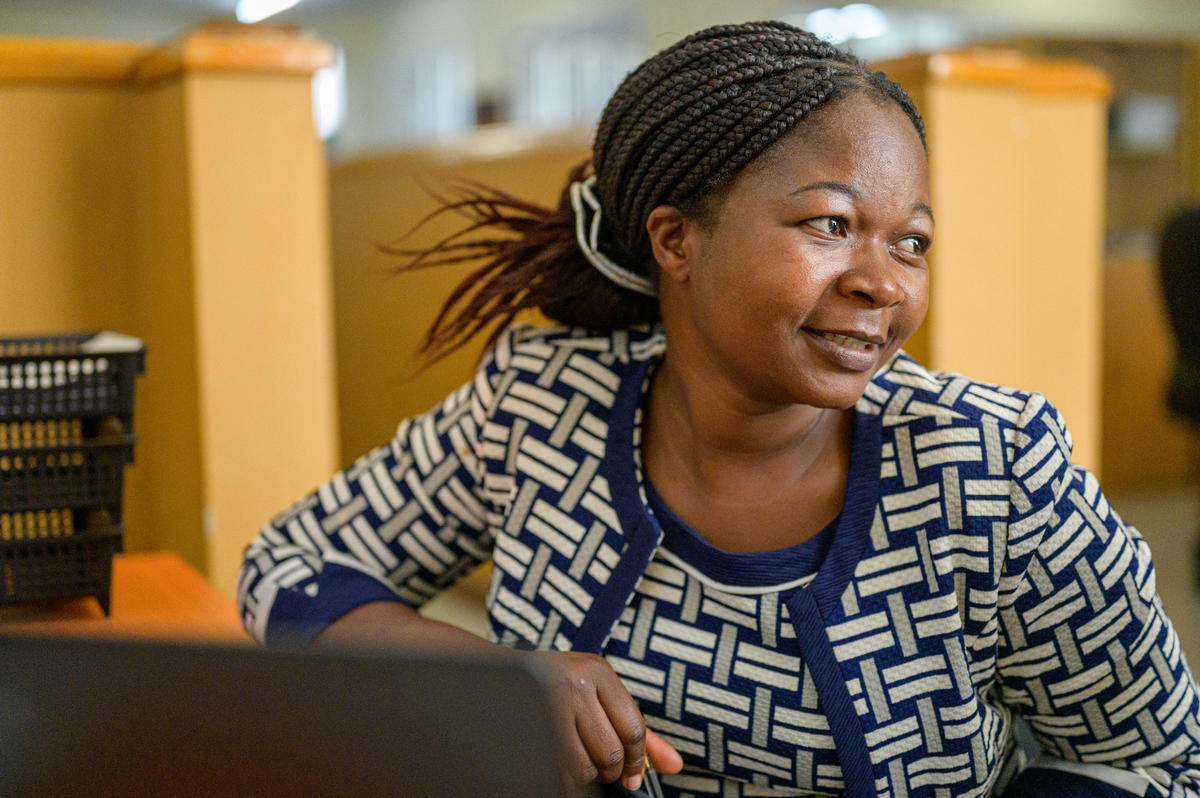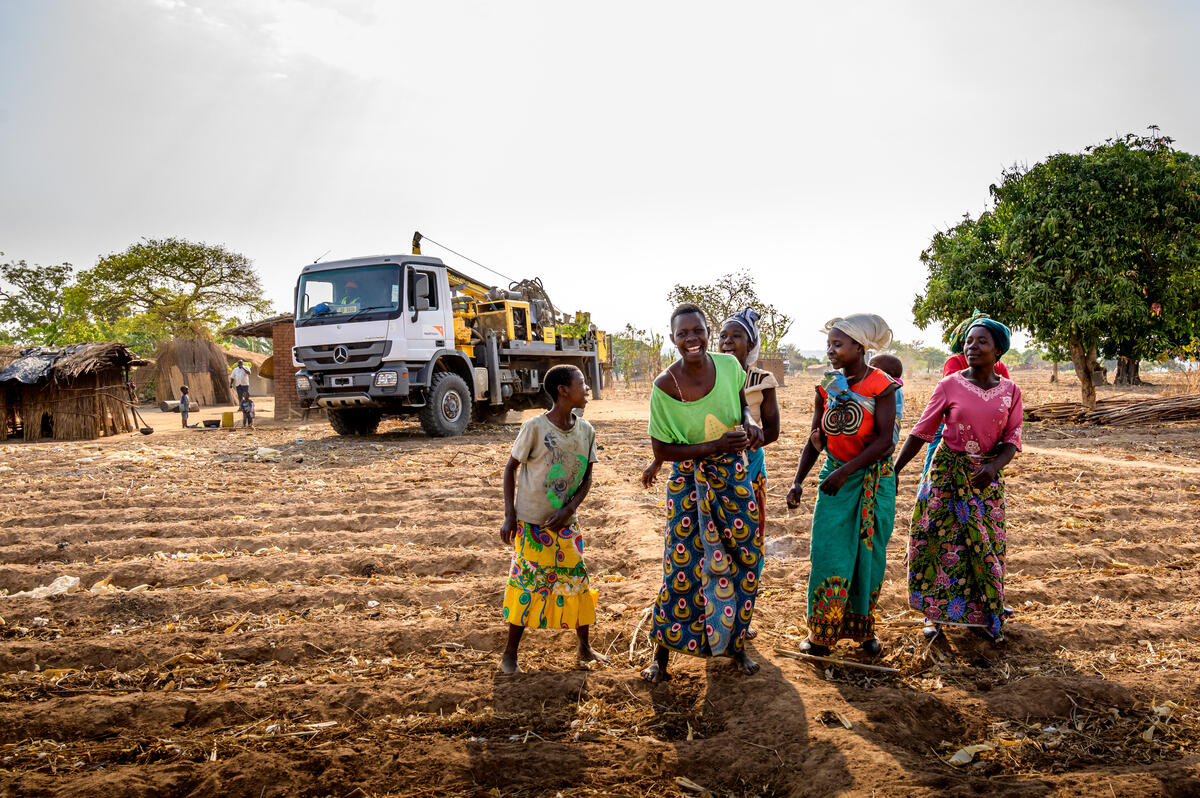When women spend most of the time fetching water, they don’t have that time to contribute to the community or take care of their babies.
They can’t prepare food.
They can’t earn an income.
They can’t support their children with homework.

Water of life
How clean water changed Liddah's life
From just four years old, Liddah Manyozo, 37, collected water before school. Then, the opportunity for clean water on tap changed everything.
With a degree in agriculture, Liddah now works for World Vision. Recently, she’s been working alongside a drill team as a technical advisor, bringing water to communities across Malawi. For her, finding clean water is not just a technical exercise, but a spiritual one:
"God created water and when we are drilling, we make a deliberate effort to seek guidance from that same God to provide water." - Liddah Manyozo
“I just thought that’s the way life is supposed to be.”
"I grew up in a remote area. In my community, we would walk for water early in the morning and then go to school. We went to a river for our water, but when it dried up, we’d have to walk to another village.
Usually there were long queues and I had a permanent bald spot on the top of my head from where my bucket used to rest.
I started collecting water at four years old. I am the firstborn in our family, so my mother mostly relied on me to help her with collecting water. In the morning, before going to school, I was supposed to collect water at least three times. I was also responsible for making sure my sisters cleaned their faces and feet before going to school. The water was not enough, so it was just cleaning your face and feet, and off you go.
I was usually late for classes because of my responsibilities. And I was tired most of the time when I was at school. This affected my concentration and performance in class."

A tough life
"It is not easy for a family to live a life without clean water. I know it well. Families need clean water for cleaning plates, washing nappies and clothes, bathing, cooking, and washing hands after visiting the latrine and before and after eating. All these things need water in the home.
Childhood changed completely
When I was in grade seven, I had the chance to leave the village to live with my uncle in town. I was lucky. At my uncle’s house, life completely changed because there was in-house running water.
I was spoiled. I would wake up, take a bath, eat breakfast, then Uncle dropped me to school with his children."
Bringing water for healthier living
"As part of the drilling team, before we even drill a borehole, the community members learn about better sanitation and hygiene practices such as handwashing, building tippy-taps [an outdoor tap built from a large plastic bottle and wooden frame] and latrines.
Clean water: key to education and the future
Because I was able to finish my education, I have a good future. It is the reason for who I am today — the reason I can work at World Vision, providing technical support in water, sanitation, and hygiene to help bring communities like this clean water.”

Unleash your inner Liddah this August
You don’t need a degree in agriculture or engineering to help Liddah bring water to more villages.
By giving to World Vision's work, you make sure vulnerable children have the essentials - including clean water - to build a brighter future.
